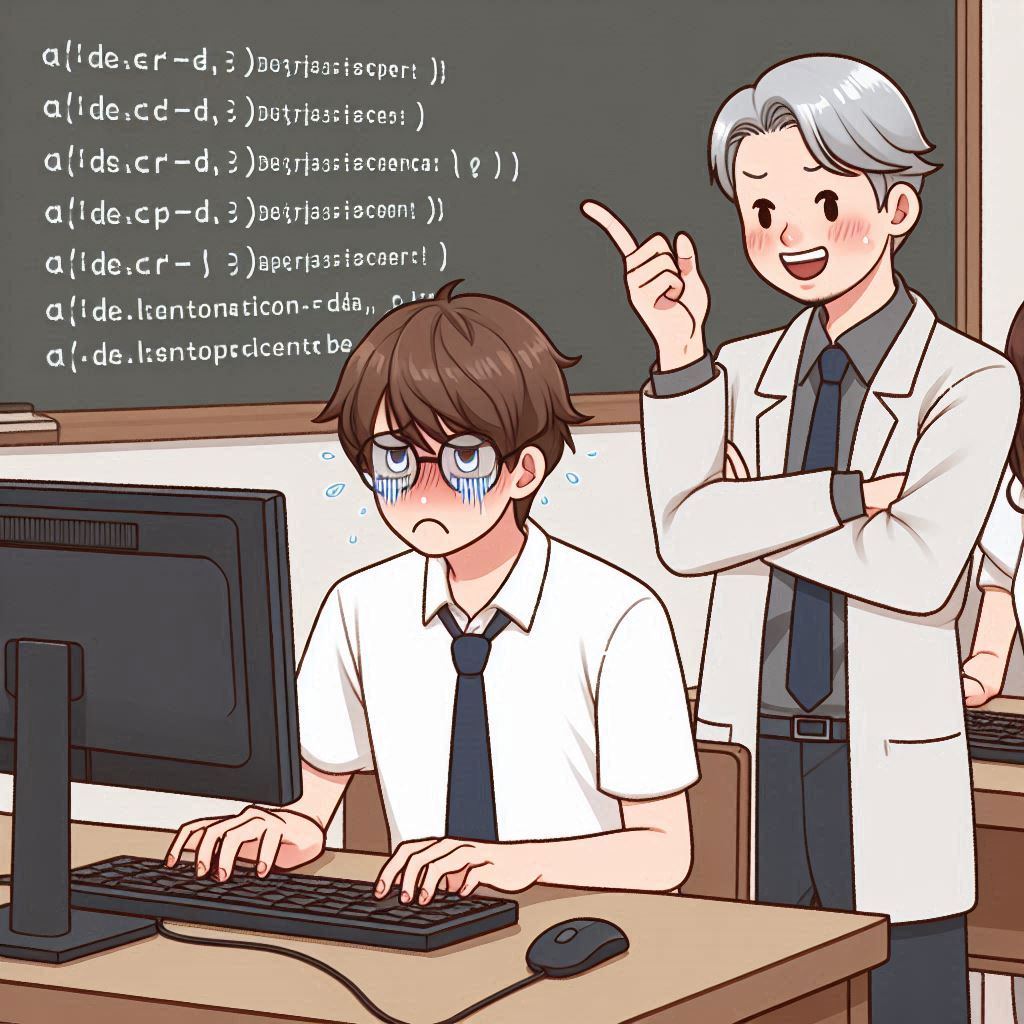As far as some might be concerned, I hate computer science a passage to the future, a field overflowing with development, and a valuable chance to shape the world with innovation. For other people, it’s a terrible maze of invulnerable language, persistent critical thinking, and an apparently ceaseless motorcade of bugs and blunders. I fall soundly into the last classification. Allow me to explain to you why I disdain Software engineering.
The Fantasy of the Style:
From an external perspective, software engineering frequently seems fabulous. Media depictions highlight tech prodigies in smooth workplaces, easily conjuring momentous applications and acquiring millions short-term. There’s a practically legendary charm to the calling, proposing that with a couple of lines of code, you can impact the world.
This depiction is misdirecting:
As a general rule, I hate computer science the everyday experience of a PC researcher is nowhere near charming. It includes endless hours gazing at a screen, troubleshooting code, and managing dark mistake messages that appear to have neither rhyme nor reason. The alleged ‘virtuoso’ of the developer is much of the time more about sheer ingenuity and a capacity to bear monotony than any innate splendor.
The Precarious Expectation to learn and adapt:
One of the most overwhelming parts of software engineering is its precarious expectation to absorb information. The field is immense and always extending, requiring authority of various programming dialects, structures, and apparatuses. Each of these has its own punctuation, shows, and eccentricities. Learning one language is sufficiently difficult; remaining current with a few is a colossal errand. At the point when you’re simply beginning, it seems like you’re suffocating in an ocean of data. Reading material and online courses toss complex ideas at you with little respect for how overpowering I can be. Terms like polymorphism, embodiment, and recursion are thrown around as though they’re simple when they’re everything except. It’s not difficult to feel lost and deterred.
The Oppression of Rationale:
I hate computer science because software engineering is unforgiving so i hate computer science. In contrast to the aesthetic sciences, where equivocalness and understanding can be qualities, in software engineering, there is no leeway. Foe a I hate computer science solitary lost semicolon or erroneously named variable can make a projects fall flat. The accuracy required is determined. For we who flourish with imagination and theoretical reasoning, this inflexibility can smother. Programming requests a type of direct, legitimate reasoning that doesn’t easily fall into place for everybody. It’s not just about taking care of issues; it’s tied in with tackling them such that the PC, a machine unequipped for instinct or sympathy, can comprehend.
The Segregation:
Another explanation I disdain software engineering is the detachment it cultivates. Writing computer programs is much of the time a single movement. I hate computer science Hours are burned through alone, slouched over a console, with just a screen for organization. Cooperation in software engineering will in general happen non concurrently – through code surveys, messages, or online discussions. This absence of eye to eye collaboration can extraordinarily seclude. For the individuals who flourish with social collaboration, this detachment can be agonizing. The cliché picture of the solitary coder, managing the night in a dim room, isn’t a long way from reality. While some could track down comfort in this isolation, for other people, it’s a desolate and distancing experience.
The Steady Change:
I hate computer science is In software engineering, change is the main consistent. Advancements develop quickly, and which state of the art today might be outdated tomorrow. This constant speed of progress can deplete. At the point when you feel you’ve dominated an instrument or language, another variant emerges, or another innovation has its spot. Staying aware of this steady development requires a huge venture of significant investment. It’s a ceaseless pattern of learning and relearning, which can prompt burnout. For the people who incline toward solidness and consistency, the consistently changing scene of software engineering is a bad dream.
The Distant Language:
Software engineering is famous for its difficult to reach language. The field is loaded with abbreviations and specialized terms that can make even essential ideas appear to be obscure. This particular language makes a boundary to passage, making it hard for newbies to get a handle on even the least difficult thoughts. The issue isn’t simply the intricacy of the actual terms however how they’re utilized. Clarifications frequently expect a degree of earlier information that novices essentially don’t have. This can cause figuring out how to feel like a daunting task, where you’re continually playing get up to speed and never entirely understanding what’s happening.
The Dissatisfaction of Investigating:
I hate computer science the most irritating part of software engineering is troubleshooting. Composing code is just around 50% of the fight; making it work is another difficulty totally. Bug are unavoidable, and finding them can be like looking for a difficult to find little item. What’s more terrible, the mistake messages given by compilers and mediators are frequently mysterious and pointless. The most common way of troubleshooting requires persistence, tender loving care, and a readiness to labor through many lines of code.
I Hate Computer Science:
The Absence of Prompt Effect: In numerous callings, the effect of your work is quickly noticeable. An educator sees the improvement of their understudies; a specialist observes the recuperation of their patients therefor I hate computer science. In software engineering, the effect is frequently less substantial. You could go through weeks or months dealing with a piece of programming, just to see it utilized in manners you never expected or appreciated. This distinction among exertion and effect can debilitate. It’s difficult to remain roused when you feel like your work is disappear into a computerized void, inconspicuous and undervalued. The absence of quick criticism can make it hard to see the worth in the thing you’re doing.
The More extensive Moral Ramifications:
At last, there’s the more extensive moral scene of software engineering to consider. The innovation we made has broad results, and not every one of them are positive. Issues like information protection, network safety, and the effect of robotization on positions are basic worries that can weigh vigorously on those in the field. As a PC researcher, you’re frequently at the front of these issues, and the moral ramifications of your work can dismay so I hate computer science. It’s a ton of obligation, and the strain to hit the nail on the head can be overwhelmed. The potential for abuse and damage is ever-present, and exploring these moral minefields is no simple errand.
Conclusion:
I hate computer science my contempt for software engineering originates from a blend of elements. the deceptive charm, the lofty expectation to learn and adapt, the oppression of rationale, the seclusion, the steady change, the difficult to reach language, the disappointment of troubleshooting, the absence of quick effect, and the more extensive moral ramifications.



5 Comments
Pingback: How to Crop a Screenshot on a Mac: A Comprehensive Guide 88 - techhubs.co.uk
Pingback: free government iphone - techhubs.co.uk
Pingback: snapsource.net - techhubs.co.uk
Pingback: 5 Reasons to Leave Your Old Proxy Provider and Try a New One - Expresstimes
Pingback: %QXEFV: Benefits https://techhubs.co.uk/ Essential 10